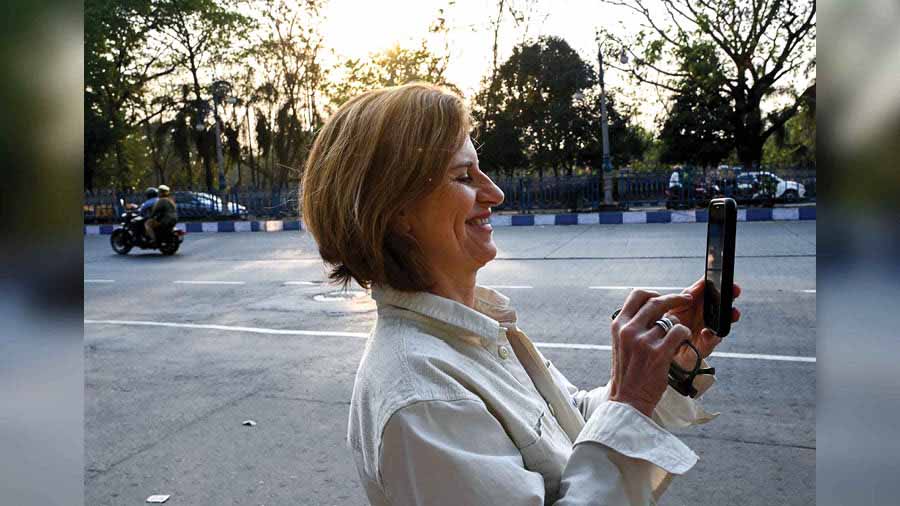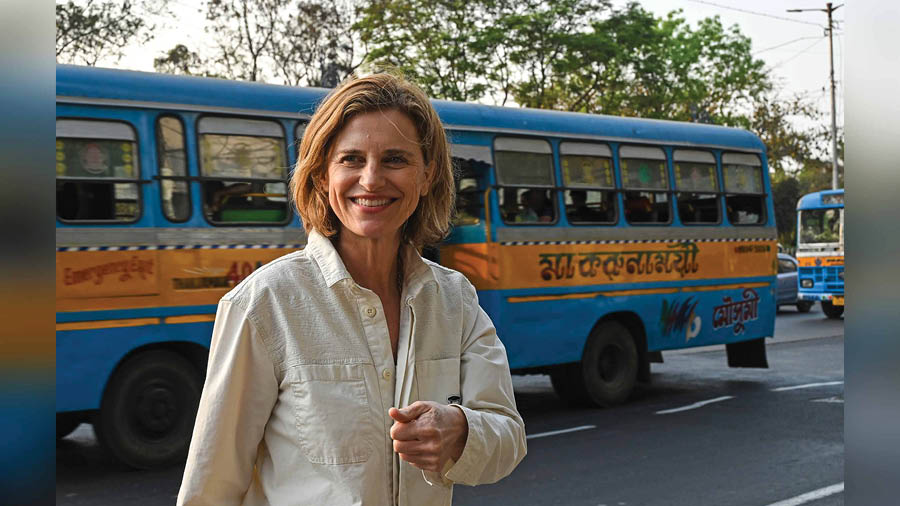Filmmaker Holly Morris captured the historic expedition to the North Pole by a group of women from Norway, Saudi Arabia, Iceland, Oman, England and elsewhere — as they got together to take a long and difficult trek in her recent documentary film Exposure.
The trek took place in April 2018 and covered around 100 km. The group traversed across ice and water from Camp Barneo, a temporary Russian outpost one of the northernmost inhabited places on earth, to the North Pole.
Along with an all-women crew, Morris followed the group, led by Felicity Aston to depict the strength, determination and courage of women. In the project, she presented the story of women change-makers and heroes. Morris was recently in Kolkata for the screening of her film at the American Center. My Kolkata caught up with the filmmaker.
Excerpts…
Q: Is this your first visit to Kolkata?
A: No. Around eight to nine years ago, I visited the city for a programme. The trip was short and I hardly saw anything here. I liked the food. Though, I would not be able to name any of the dishes. It was amazing. But the traffic is less and more orderly this time.
Q: Tell us something about your filmmaking journey?
A: I was into publishing books. I was an editor and writer for women's stories and activism issues. It was in the ’90s when I realised that these topics would have more impact if depicted through films. One of my first films was in India, on several women change-makers like Kiran Bedi etc. Soon, I took it as my career path. I realised that one needed to be passionate enough to be a documentary filmmaker because they are so difficult to make. So, my subjects are mostly about giving megaphones to unlikely heroines.
Q: How did ‘Exposure’ happen?
A: It’s a long story. I had done a number of expedition filmmaking before. So, when I heard about this expedition to the North Pole by a group of women, I was really excited. It was the brainchild of Felicity Aston, the expedition leader, who put out a global call for applications from inexperienced women for the expedition and I knew I wanted to make a film on this. I introduced myself to her and then showed up at their training sessions.

'It was in the ’90s when I realised that these topics would have more impact if depicted through films' Amit Datta
Q: How much time did you take to plan, film and edit?
A: Before the actual North Pole expedition, the team went through four training sessions. So, we started filming in 2016 in Iceland during one of the training programmes. Then there were several delays in the project like any other expedition and we finally were able to complete the project in five years.
Q: Why did you make the film?
I wanted to capture the historic moment when a few women from the Arab world and the West were going on such an expedition. It was all about power and gender and had a very powerful message.
Q: Most films on North Pole expeditions have narrations. Yours doesn’t. Why is it so?
A: We wanted to capture the real-life experience there, and to do that, we knew that audio was extremely important. It was difficult and not humanly possible at minus 39 degrees Celsius to change the audio battery and devices. So, we installed independent recording devices with each team member and kept recording throughout the day. In the end, we got a huge amount of audio and in post-production, we sorted it out.
Q: For any documentary, photography plays a very crucial role. North Pole is visually a monotonous subject. How did you overcome this challenge?
A: Yes, it was a challenge. At the North Pole it’s all white. The sky and the ground. Besides, it was monotonous for the members too, because most of the time nothing dramatic happened. So, we captured the tents and used interesting audio to break the monotony.
Q: Are you familiar with Bengali cinema?
A: Not yet, but I am eager to watch All that Breathes by Shaunak Sen.
